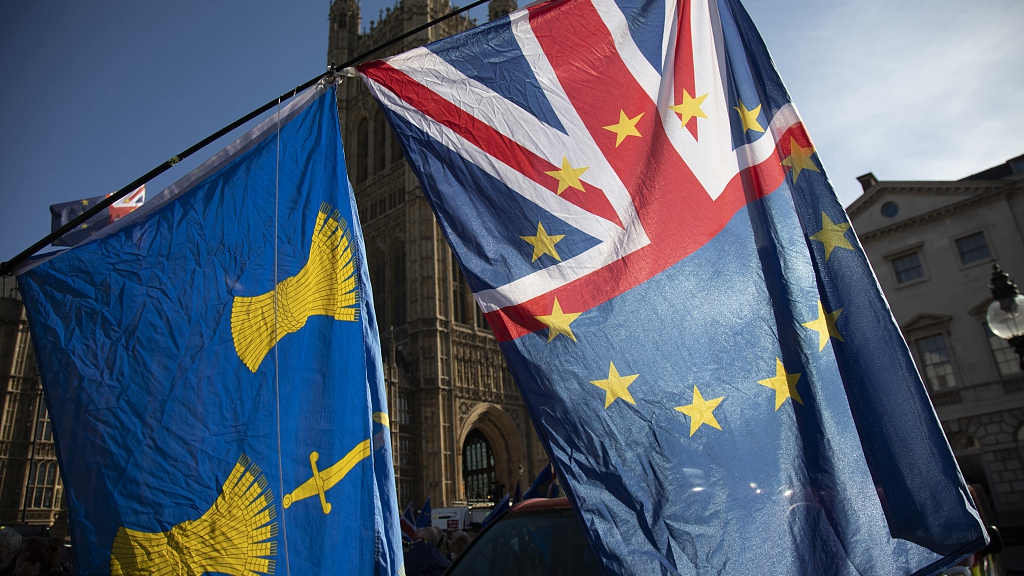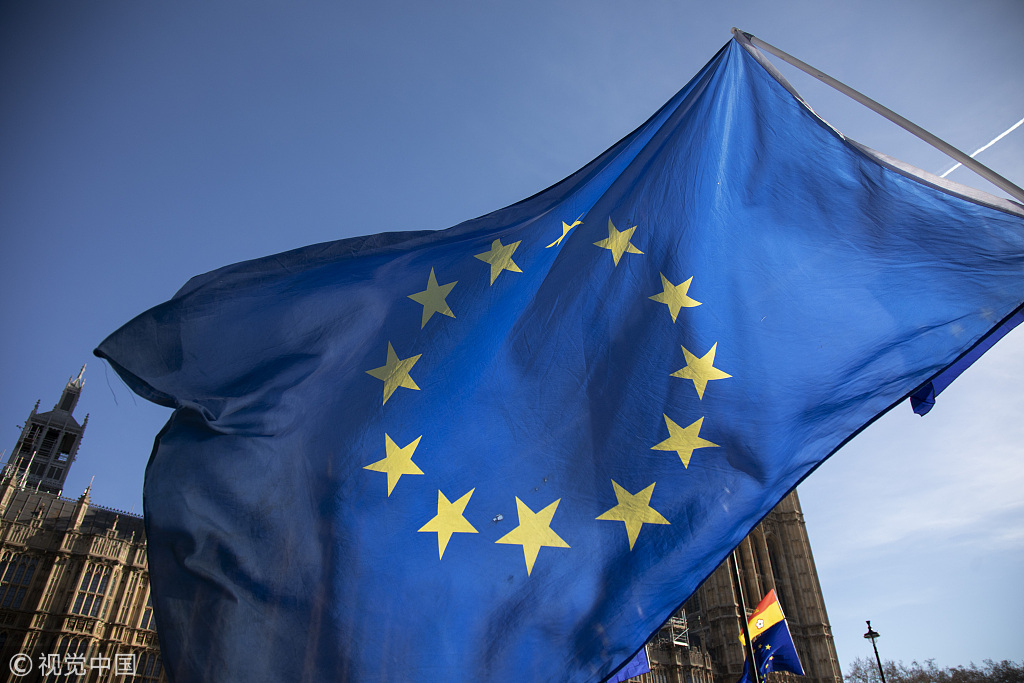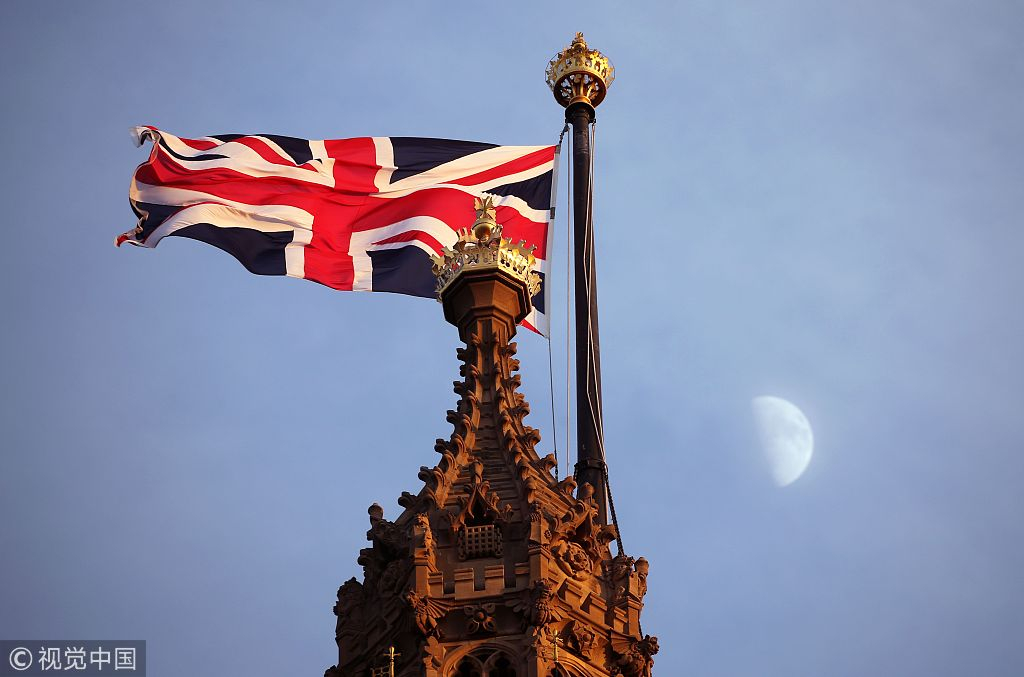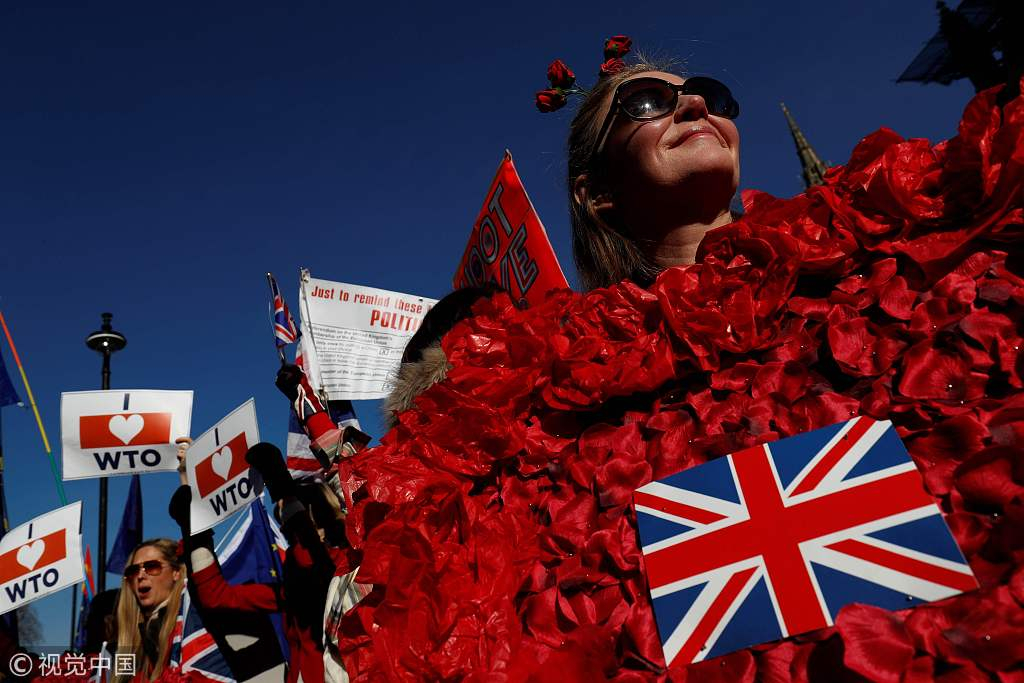
Opinion
13:21, 16-Feb-2019
No-deal Brexit hobbles more than just the UK and EU
Hu Hong

Editor's Note: Hu Hong is an assistant research fellow at the Department of European Studies, China Institute of International Studies. The article reflects the author's opinion, and not necessarily the views of CGTN.
Unsurprisingly, Theresa May suffered another Brexit defeat in the British parliament on February 14. Though the vote is only symbolic and a non-binding one, the defeat could be a strong blow to May's authority and credibility, with the deadline for Brexit approaching.
This latest vote suggests that the debate on January 27 may become a decisive moment for Brexit.
After two votes at the end of January and this latest one, the deadlock in Brexit negotiations seems further consolidated. The EU side has repeatedly declared that the withdrawal treaty agreed to last November would not be reopened or renegotiated.
This latest vote only weakens Theresa May's credibility in her EU counterparts' eyes – officials in Brussels are claiming they now regard the UK prime minister as an unreliable negotiating partner.

Anti-Brexit pro-EU demonstrators wave EU flags in Westminster opposite Parliament in London, United Kingdom, February 14, 2019. /VCG Photo
Anti-Brexit pro-EU demonstrators wave EU flags in Westminster opposite Parliament in London, United Kingdom, February 14, 2019. /VCG Photo
It would be difficult to imagine there will be any major concession from the EU side at this stage.
Besides, the situation seems far more complicated in London. There is no clue to what kind of deal could be brought to Westminster and satisfy more than half of the parliamentarians.
Some parliamentarians cast their votes out of party politics or so-called “ideological purity” rather than the responsibility of the whole country or pragmatism.
Though they seem unlikely, rumors on another general election or taking the negotiation out of May's hands are flying.
It looks like politicians on both sides of the British Channel are playing a game of chicken and simply letting the situation sleepwalk into a no-deal Brexit.
Although the prospect and the process of Brexit remains ambiguous, the consequences are looming. For Britain, a no-deal Brexit would be a huge shock to British politics and economics.

The moon is pictured rising beyond a Union flag flying from atop the Victoria Tower at the Houses of Parliament in London, February 13, 2019. /VCG Photo
The moon is pictured rising beyond a Union flag flying from atop the Victoria Tower at the Houses of Parliament in London, February 13, 2019. /VCG Photo
Dominic Grieve, a senior conservative opponent of Brexit, has predicted that up to a dozen ministers could resign if no-deal Brexit becomes the reality. And according to the chief economist at the International Monetary Fund (IMF), the UK should avoid crashing out of the EU or risk a five to eight percent reduction in GDP "over times.”
Indeed, the current British economy has been influenced by the bleak prospect of the Brexit negotiation. Last December, British GDP declined 0.4 percent compared with the previous month and was the biggest decline since March 2016.
Last year, GDP growth rate was the lowest in the past 6 years. On the same day of the latest vote, a Bank of England rate-setter estimated that the cost of Brexit to the UK economy runs at 40 billion pounds per year.
Some recent movement by the British government suggests that British officials are determined to make up for the loss of Brexit, but prospects don't look promising.
On February 11, the UK signed a Brexit trade continuity deal with Switzerland. With less than 50 days in sight, British officials are still rushing to ensure the continuity of 40 free trade deals held by the EU covering 71 countries.
However, it is quite clear, and has also conceded by British ministers in private meetings, that not all the deals could be replaced in time, which means a large proportion of UK exports would shift to WTO rules, and leads to higher tariffs and extra costs for British and foreign companies.

Pro-Brexit activists hold placards reading "I love WTO" as they demonstrate outside of the Houses of Parliament in central London, February 14, 2019. /VCG Photo
Pro-Brexit activists hold placards reading "I love WTO" as they demonstrate outside of the Houses of Parliament in central London, February 14, 2019. /VCG Photo
At the moment, such deals with major trading partners, such as Canada, Japan and South Korea have not yet been signed.
Not only would a no-deal Brexit bring severe harm to the UK, it will also have collateral damage on the EU and the whole world. A no-deal Brexit has been regarded as one of the biggest risks to growth in the global economy in 2019 as the IMF warned in its latest economic outlook.
With global growth expected to weaken this year compared to 2018, a no-deal Brexit will only add up uncertainties to the global economy.
For the European Union, either a no-deal Brexit or a postponed Brexit negotiation will magnify the current political chaos inside the EU.
As the preparation of the European Parliament election has already kicked off quietly in each EU member country, the uncertainty regarding Brexit will not only bring a technical problem to the election, but further influence the formation and duty of the next EU institution.
It seems likely that while the next EU institution might focus on maintaining solidarity and strengthening "strategic autonomy," the conundrum of Brexit will still linger on.
(If you want to contribute and have specific expertise, please contact us at opinions@cgtn.com.)

SITEMAP
Copyright © 2018 CGTN. Beijing ICP prepared NO.16065310-3
Copyright © 2018 CGTN. Beijing ICP prepared NO.16065310-3